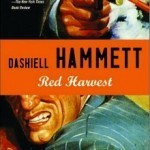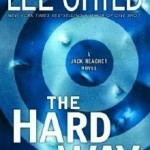Matt Rees's Blog, page 14
December 16, 2011
Bookreporter dubs me 'gently eccentric'
A very nice review of my new novel Mozart's Last Aria on Bookreporter.com has this to say, among other amusing and insightful observations:
Music is notoriously difficult to capture in prose; Matt Rees tries valiantly, elegantly, and for the most part successfully to do justice to a composer who is regarded --- and not just by me --- as a deity. Rees himself comes off in interviews as gently eccentric: “I write standing up, doing yoga stretches, and listening to Mozart,” he confides. I think Wolfgang would have liked that.
Published on December 16, 2011 02:49
•
Tags:
crime-fiction, historical-fiction, mozart-s-last-aria, reviews, wolfgang-mozart
December 15, 2011
Best First Paragraphs in Crime Fiction: Part 1
 If you have a lot of time to waste, you never judge a book by its cover. But don’t try telling me you don’t judge it by its first paragraph.
If you have a lot of time to waste, you never judge a book by its cover. But don’t try telling me you don’t judge it by its first paragraph.What makes a great first paragraph? And which are the greatest? We all have favorites, some of which have become clichéd –– as happens to anything, whether it’s the best of times or the worst of times, or if you grew up in a family that was unhappy in its own way. See what I mean?
In general it’s hard to beat Hemingway’s opening to “The Sun Also Rises” for laying out the narrator’s character, as well as the character being described: “Robert Cohn was once middleweight boxing champion of Princeton. Do not think that I am very much impressed with that as a boxing title, but it meant a lot to Cohn.”
But what about crime fiction? Over the next few weeks, I’m going to look at some of the best first lines and paragraphs in the genre. Next week, we’ll do a little Chandler (how did you guess?) and then we’ll be on to Simenon, who was a nasty enough man to write perfectly bitter downbeat prose from the very start of his books.
Let’s begin, though, with the man who in many ways beats them all: Dashiell Hammett.
I bet you think I’m going to talk about “The Maltese Falcon,” which in the first paragraph describes Sam Spade as looking “rather pleasantly like a blond Satan.”
But I’m not.
No, we’re going to have a quick gander at the opening of “Red Harvest,” Hammett’s first novel, in which his Continental Op heads to a corrupt small town. It starts this way:
I first heard Personville called Poisonville by a red-haired mucker named Hickey Dewey in the Big Ship in Butte. He also called his shirt a shoit. I didn’t think anything of what he had done to the city’s name. Later I heard men who could manage their r’s give it the same pronunciation. I still didn’t see anything in it but the meaningless sort of humor that used to make richardsnary the thieves’ word for dictionary. A few years later I went to Personville and learned better.
For the rest of this post, read The Man of Twists and Turns.
Published on December 15, 2011 03:36
•
Tags:
crime-fiction, dashiell-hammett, detective-fiction, first-paragraphs, mysteries, noir-fiction, style, writers, writing
December 2, 2011
Mystery Scene: "resounding bravo" for MOZART'S LAST ARIA
 I am, as they say back in the UK, chuffed as hell that Mystery Scene magazine gives my new novel an absolutely terrific review. Reviewer Sue Emmons says MOZART'S LAST ARIA deserves "a resounding bravo." Sue also calls it "beautifully written and diligently researched. Rees makes the musical realm of Mozart sparkle with intrigue." Well, I take a most modest bow in gratitude.
I am, as they say back in the UK, chuffed as hell that Mystery Scene magazine gives my new novel an absolutely terrific review. Reviewer Sue Emmons says MOZART'S LAST ARIA deserves "a resounding bravo." Sue also calls it "beautifully written and diligently researched. Rees makes the musical realm of Mozart sparkle with intrigue." Well, I take a most modest bow in gratitude.
Published on December 02, 2011 04:27
•
Tags:
crime-fiction, historical-fiction, mozart-s-last-aria, reviews
December 1, 2011
Re-reading Ray
 I happened to read a few crappy books in a row of late. So I did what I always do when I can’t afford for the next book I get into to disappoint: I re-read a Raymond Chandler.
I happened to read a few crappy books in a row of late. So I did what I always do when I can’t afford for the next book I get into to disappoint: I re-read a Raymond Chandler.I picked “The Long Goodbye” off the shelf, because it’s my favorite. From the very first page, where Marlowe finds Terry Lennox falling drunk out of a Rolls Royce Silver Wraith in front of a club called The Dancers, I find myself hooked once again: “The girl gave him a look which ought to have stuck at least four inches out of his back. It didn’t bother him enough to give him the shakes.”
Chandler is, for me, the greatest of writers. Taken with Hammett, I’d say he did everything for American literature that people always assume Hemingway did: made things simple, direct, tough and stark. But unlike Hemingway (and like Hammett), he had the gruff sense of humor of a man who didn’t quite buy into the system (he wasn’t a Communist like Hammett, but he’d lived in England and been in the Canadian airforce, which made him less than conventional). That’s why he wrote crime novels, I think. It’s an outsider’s genre, the writing venue of a man or woman who sees through things and yet remains positive enough to bother putting pen to paper.
Chandler, like Marlowe, seems to have “felt as out of place as a cocktail
onion on a banana split.” Frequently, so have I, when I’ve been among the
corporate or the gilded of this world –– and I have spent many an
uncomfortable day, month or year in those scurrilous circles. That, in
fact, may be why I’m a writer. Certainly it helps me cope with the weird
status a writer holds today, threatened and undervalued, and yet cherished
(though not always enough for someone to buy your book and pay for your
kids to go to college.)
Ray understood all that. In his essays he writes about how banal commercial
British cosy mysteries “really get me down.” In his interviews, he
complained that “you starve to death for ten years before your publisher
realizes you’re any good.”
Yes, Ray’s my man.
More posts by Matt Rees. More about Matt's books.
Published on December 01, 2011 02:29
•
Tags:
crime-fiction, detective-fiction, noir, philip-marlowe, raymond-chandler
November 29, 2011
The Other Mozart, No Longer Forgotten
 On the Wall Street Journal's Speakeasy arts blog, I've written a piece about why artistic attention is finally being paid to Nannerl Mozart, sister of the great composer and an important musical figure who was denied "greatness" because of her sex. I'm referring to the new French movie "Mozart's Sister," as well as some other books published over the last few years, and of course to my own new historical crime novel MOZART'S LAST ARIA.
On the Wall Street Journal's Speakeasy arts blog, I've written a piece about why artistic attention is finally being paid to Nannerl Mozart, sister of the great composer and an important musical figure who was denied "greatness" because of her sex. I'm referring to the new French movie "Mozart's Sister," as well as some other books published over the last few years, and of course to my own new historical crime novel MOZART'S LAST ARIA. You could say my novel takes the trend a stage further because the Mozart of my title is Nannerl, not Wolfgang. For me, she’s not just Mozart’s sister. She’s as much entitled to be “Mozart” as he is.
Take a look at the full article.
Published on November 29, 2011 00:31
•
Tags:
crime-fiction, historical-fiction, mozart-s-last-aria, nannerl-mozart, wall-street-journal
Invited to Speculate about Julia Roberts
 Marshal Zeringue's Campaign for the American reader continues with an invitation for me to speculate about which actress ought to play the lead in a movie version of my new historical crime novel MOZART'S LAST ARIA. (It's speculation for now, because movie deals take a long time coming...) Here's what I wrote (and here are more writers on Marshal's blog My Book, the Movie):
Marshal Zeringue's Campaign for the American reader continues with an invitation for me to speculate about which actress ought to play the lead in a movie version of my new historical crime novel MOZART'S LAST ARIA. (It's speculation for now, because movie deals take a long time coming...) Here's what I wrote (and here are more writers on Marshal's blog My Book, the Movie):American actresses ought to be climbing over each other to option the film rights for Mozart's Last Aria. Why? Because the main character is a woman just over forty years old.
It’s well-known that all but a few actresses disappear from lead billing by the time they hit that age. Men, by contrast, can still be playing action heroes and romantic leads when they’re already in adult diapers.
Nannerl Mozart, the sister of the great composer, was a child prodigy at the piano, just like Wolfgang. But in her teens she was left at home by their ambitious father, while Wolfgang went to Italy to compose operas. After that, Nannerl was married off – eventually, at age 32, which was old maid territory in the late eighteenth century – and lived in a remote mountain village with her husband, a boring tax official.
In Mozart's Last Aria, she learns of her brother’s death and suspects foul play. (Mozart himself really did tell his wife that he was being poisoned and six weeks later he was dead.) She travels to Vienna to find out the truth. In the imperial capital, she uncovers a plot involving underground Masonic lodges, espionage, and a secret hidden in the libretto of Wolfgang’s last great opera, The Magic Flute.
Read the rest of this post on Matt's blog The Man of Twists and Turns.
Published on November 29, 2011 00:21
•
Tags:
crime-fiction, historical-crime, historical-fiction, julia-roberts, movies, mozart
November 17, 2011
Renko Rules
 This is a crime fiction blog. So we ought to shoot straight. Here it is: there are lots of crappy detective novels out there. Which is why I say thank God for Arkady Renko.
This is a crime fiction blog. So we ought to shoot straight. Here it is: there are lots of crappy detective novels out there. Which is why I say thank God for Arkady Renko.The hero of Martin Cruz Smith’s excellent series set in the Soviet Union and, later, Russia (with stops in Cuba, Ukraine, Germany and Alaska) is the closest today’s crime fiction gets to Chandler’s idea that “down these mean streets a man must go who is not himself mean.” In many ways, Cruz Smith is the closest among current crime writers to the keen yet elliptical style of plot development perfected by Chandler. (In Chandler’s case, that was, as
he admitted, largely because he didn’t really keep track of the plot; I
suspect that’s not the issue with Cruz Smith.)
[Note: To qualify my lead paragraph, I ought to quote Chandler once again:
“There are as many bad literary novels as bad detective novels. The bad
literary novels just don’t get published.” That’s not true anymore, as
anyone who’s ever tossed a copy of Philip Roth’s “The Plot Against America”
at the wall will vouch. Still detective fiction retains that reputation among certain circles, and indeed a lot of crap still washes through the sleuthing sluices.]
I’ve read all the Renko novels, as well as some of Cruz Smith’s standalone
books. From the perspective of a writer, I’ve observed with enormous
pleasure the elements that make Renko work so well, and of course the
manner in which Cruz Smith puts them to effect.
A key to this is Renko’s voice. His apparently deep disillusion is something of a trick. Renko’s father was a Stalinist general and as an investigator he’s constantly measuring himself against that old bastard – and regretting the similarities he finds. This continuity between the old USSR and the new FSU grounds Renko. It’s why he’s not a drunk like some of his colleagues, and why he isn’t corrupt like the others: he’s a hard-edged idealist, like his father, who happens to have inherited the humanity of his mother.
Cruz Smith’s Russia is the perfect backdrop for Renko’s tawdry shining
armor. After the collapse of the Soviet Union, Cruz Smith has painted the
breakdown of society better than any nonfiction or journalism I’ve read.
It’s what I’ve tried to do with my Palestinian crime novels.
Read more of this post on my blog The Man of Twists and Turns.
Published on November 17, 2011 05:38
•
Tags:
arkady-renko, crime-fiction, martin-cruz-smith, russia, soviet-union, writing
November 2, 2011
MOZART'S LAST ARIA out now in the US
 My new novel MOZART'S LAST ARIA is out Nov. 1 in the US, published by HarperCollins. The book has earned terrific reviews from top writers like Tess Gerritsen, who says it's a "fascinating historical mystery. A perfect read." NPR compares it to The Da Vinci Code, and Kirkus Reviews says it "will delight fans of classical music." You can browse inside the book here and buy it here. Watch videos about the book and hear me read from it here.
My new novel MOZART'S LAST ARIA is out Nov. 1 in the US, published by HarperCollins. The book has earned terrific reviews from top writers like Tess Gerritsen, who says it's a "fascinating historical mystery. A perfect read." NPR compares it to The Da Vinci Code, and Kirkus Reviews says it "will delight fans of classical music." You can browse inside the book here and buy it here. Watch videos about the book and hear me read from it here.
Published on November 02, 2011 10:35
•
Tags:
crime-fiction, da-vinci-code, dan-brown, historical-fiction, mozart, mozart-s-last-aria, tess-gerritsen, wolfgang-mozart
September 22, 2011
Screenplaying
 Whenever a novelist’s biography tells me that he’s “working on a screenplay,” my heart falls. I feel pity for the poor fellow who’s no doubt heading for disappointment (most scripts don’t get made) and for the novel, which exerts such a lesser lure than the glamour of the movies that a perfectly good novelist will put off his next book for a chance to write a film.
Whenever a novelist’s biography tells me that he’s “working on a screenplay,” my heart falls. I feel pity for the poor fellow who’s no doubt heading for disappointment (most scripts don’t get made) and for the novel, which exerts such a lesser lure than the glamour of the movies that a perfectly good novelist will put off his next book for a chance to write a film.Having said that, don’t feel sorry for ME. Even though I’m working on a script.
My first novel THE COLLABORATOR OF BETHLEHEM has been optioned by Michael Desante, a US actor and producer who was born in Bethlehem. As part of the deal, Michael asked me to write the script. I’m in between novels at the moment, so I’ve been busily converting from the page toward the silver screen.
It isn’t such a leap as one might think. Much of THE COLLABORATOR OF BETHLEHEM is internal, rather than visual – because it’s the story of schoolteacher Omar Yussef’s psychological hesitation in becoming a detective. Yet it’s still a crime novel. And for a long time crime novels have been structured more or less like films.
Probably that’s the result of many crime novelists wanting the Hollywood cash, and therefore modeling their storytelling on films. But essentially it means that the way most of us are accustomed to having a story told is in highly visual, filmic terms.
Even in a fairly psychological/internal novel like THE COLLABORATOR OF BETHLEHEM, I planned the book with the three act structure common to the movies these days. As Syd Field put it in his book “Screenplay,” a script is 120 minutes/pages long; by page 30 the main character needs to be faced with the dilemma which he’ll spend the next 60 pages investigating, and from page 90 on we’ll see the dilemma resolved.
Read the rest of this post on my blog The Man of Twists and Turns.
Published on September 22, 2011 04:32
•
Tags:
crime-fiction, ernest-hemingway, michael-desante, omar-yussef, palestine, palestinians, screenplay, the-collaborator-of-bethlehem, writing
September 8, 2011
Why thriller titles...aren't
 Thriller titles often seem designed to confuse prospective readers. Pick up a book by a well-known author, read the title which is something like “Better Off Dead,” and you’re likely to think: “Did I already read that one?
Thriller titles often seem designed to confuse prospective readers. Pick up a book by a well-known author, read the title which is something like “Better Off Dead,” and you’re likely to think: “Did I already read that one?It seems to me titles in the thriller world have moved away from any kind of descriptive or even tangential link to the plot or characters of the book. They have become in many cases an adjunct to the cover design. A “blurb” (the laudatory comments dashed all over the jacket by other writers or reviewers) distilled to two or three words. As though the title were only there as encouragement to a purchase, rather than being part of the book itself.
There are plenty of examples among today’s top writers. But let’s take the example of Lee Child’s excellent Jack Reacher novels. I just caught up on a couple I’d missed. They’re called “Without Fail” and “Nothing to Lose.”
“Without Fail” is about a plot to assassinate the Vice President of the US. I couldn’t tell you why it’s called “Without Fail.” As far as I remember, no one says “without fail” or tells Reacher he has to do something “without fail.” He drinks coffee at every opportunity – without fail, you might say – but I don’t think that’s why Child called the book “Without Fail.”
In “Nothing to Lose” Reacher finds himself in rural Colorado investigating a dead body he stumbles across in the desert. I was left unsure which of the characters had “nothing to lose.” Perhaps it was Reacher, or the people (no spoilers here) who turn out to be involved in the thing he’s investigating. Or maybe it’s the reader in the airport bookshop…
In any case, these latest two come on the back of my earlier Reacher reading, where I pondered why “Running Blind” was called “Running Blind” (despite the tagline on the cover which said something like, “Reacher doesn’t know what the hells’ going on, in fact he’s RUNNING BLIND”. Even though Reacher seemed to know what was going to happen in that book a long time before everyone else.) I still don’t know why “Worth Dying For” was called “Worth Dying For,” because Reacher never seems about to die and the people who actually die do so for despicable reasons that aren’t worth dying for.
“61 Hours” was called “61 Hours” because it took the form of a countdown. But why 61 hours? Pretty arbitrary, but at least when I stand before a shelf of Child books in a store I’m able to remember that I’ve read that one. Otherwise I get confused. It’s almost as though publishers want thrillers to have such vague titles that befuddled readers will buy the same book twice.
My novels have titles related to the theme or events or characters of the book. If you’re looking at a shelf of my books and you’ve read some of them, you’ll recall that “A Grave in Gaza” was the one set in Gaza; that “The Collaborator of Bethlehem” was about a collaborator and was set in Bethlehem. “The Samaritan’s Secret” was about a secret held by a Samaritan. If you haven’t read “The Fourth Assassin,” you’ll run mentally through the books you have read and think: “They didn’t have four assassins in them, but this one does, so I haven’t read it yet. Let’s buy it.” And you wouldn’t come to the end of the book saying to yourself: “Hey, I only counted three assassins,” or “Hey, there weren’t any assassins in the book at all. Were there?”
Read the rest of this post on my blog The Man of Twists and Turns.
Published on September 08, 2011 04:00
•
Tags:
charles-dickens, crime-fiction, franza-kafka, greg-iles, jane-austen, joseph-heller, lee-child, leo-tolstoy, thrillers, titles



